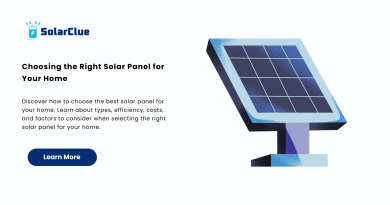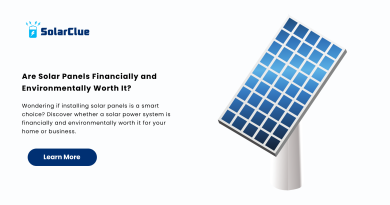What are the maximum and minimum temperatures that Solar Batteries can sustain?
Solar batteries have become an increasingly popular and efficient way to store energy for various applications and purposes. While solar battery technology continues to evolve, one of the most important considerations for consumers is understanding the maximum and minimum temperatures that their solar batteries can sustain over time.
Knowing the temperature limits of these devices is essential for ensuring long-term reliability and performance. This article will provide an overview of the current temperature range for solar batteries and explain why these temperatures are important.
Maximum and Minimum Temperatures
Solar batteries, like any other type of battery, are affected by temperature, and extremes in temperature can significantly impact their performance and lifespan. It is, therefore, essential to understanding the temperature range within which solar batteries can operate efficiently and safely.
According to the search results, the best temperature range for operating solar batteries is between 68ºF and 77ºF (20ºC to 25ºC). Within this temperature range, the batteries can function at their maximum capacity and have a longer lifespan. However, temperatures above or below this range can negatively impact the battery’s performance and lifespan.
The search results also suggest that solar batteries can sustain a maximum temperature of around 113ºF (45ºC). Exposure to higher temperatures can cause the battery to degrade faster, reducing capacity and lifespan. Moreover, the cells inside the battery can damage due to thermal stress, leading to permanent failure.
On the other hand, the minimum temperature solar batteries can sustain is around -4ºF (-20ºC). Exposing the battery to temperatures lower than this can cause the electrolyte inside the battery to freeze, which can cause severe damage to the cells and other internal components of the battery.
It is important to note that the temperature range within which solar batteries can function efficiently and safely can vary depending on the specific brand and model of the battery. Some batteries may be more tolerant of extreme temperatures than others, and some may require additional cooling or heating mechanisms to operate efficiently outside the ideal temperature range.
Do solar batteries work in cold weather?
Solar batteries do work in cold weather, but their performance can be affected by low temperatures. Batteries lose about 10% of their rated capacity for every 15-20 degrees below 77°F (25°C). Therefore, for every 15-20 degrees in temperature drop, the performance of batteries drops by around 10%. However, some battery systems, such as lithium-ion batteries, have built-in heaters to keep peak performance in all weather conditions.
Lithium-ion and AGM batteries perform better in cold weather than flooded lead-acid batteries. Lithium-iron phosphate batteries cannot be charged at freezing temperatures, and charging them at such temperatures can cause damage. No matter how cold it is, ionic lithium batteries can be used and discharged without suffering damage, but they shouldn’t be charged at temperatures below freezing.
It is also possible to install solar light batteries indoors and protect them from the winter weather. Providing shelter is another option to protect batteries from the cold. To ensure optimal performance, it is important to use a charger or charge controller designed for the specific battery type. Solar panels can generate electricity in snow and extremely cold climates, allowing for power through winter storms.




It’s A Piece Of Great Information. Thank You For This Information.
We have just recently started up a solar company and came across this article that peeked our interest.
I really appreciate you taking the time to educate us on this! We knew about the batteries and their life expectancy but we didn’t know about how the temperature affects them and about the lithium-ion batteries.
I know that solar can be a difficult topic to talk about, but you did an amazing job explaining it. Thanks a lot!
This is a very informational article to read and one that is very enjoyable as well. It is something that is very easy to understand and something that everyone should know.
This is some very useful information to anyone who is looking to get solar put on their house, or even if someone is looking to put solar anywhere because now with the information that this blog has given people have more of an idea of what to do based off where they live and what temperature has an affect on solar batteries.
This is a very informational blog about how the batteries for solar panels work and how they are affected with the different types of conditions that they are in. Thank you for making this post it was very useful!
my interest in using lithium-ion batteries charged by solar energy, can be used for all house electrical loads like refrigerator , ceiling fans and led lights ,( Ac units if possible ) on regular basis in place of conventional power supply . because now a days conventional power tariff is so high. I feel if we adopt lithium ion batteries charged by solar power may be cheaper . kindly get me your open ion pl. thank you
Pingback: Optimizing Energy: Solar Panel Batteries Explained – Energy saving
Thanks for sharing. This was such an informative read!
Glad you found it informative! Stay tuned for more insights on global wealth and business trends.